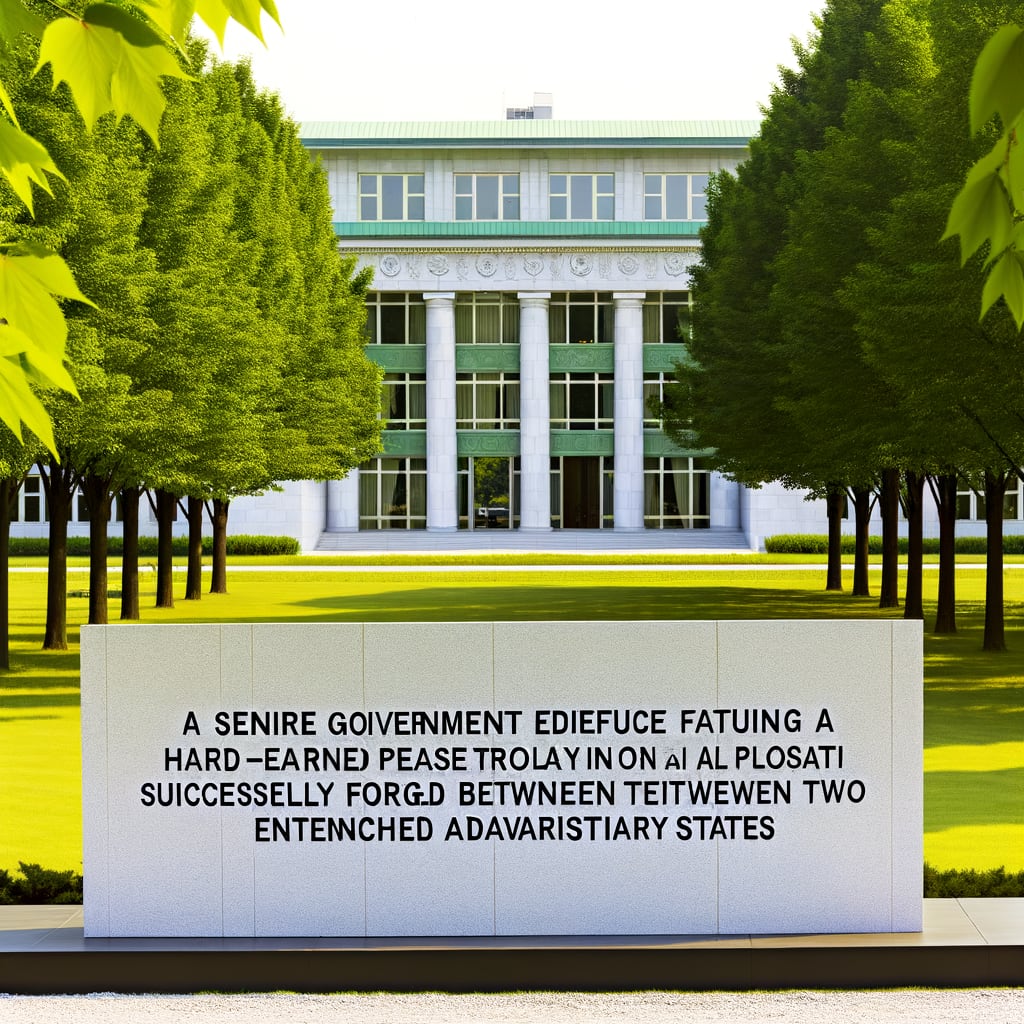Trump Brokers Historic Peace Agreement Between Armenia and Azerbaijan
In a landmark move, President Donald Trump has hosted the leaders of long-time adversaries Armenia and Azerbaijan at the White House, culminating in the signing of a US-brokered peace agreement. The deal signals an end to their decades-long conflict and opens a key transit corridor in the region, known as the ‘Trump Route for International Peace and Prosperity’.
Background and Context
The South Caucasus nations of Armenia and Azerbaijan have been embroiled in a bitter conflict for over 30 years. The strife reignited last year, prompting renewed efforts to broker a peace agreement. The successful mediation by President Trump has been seen as a significant step forward for the region.
The Summit and Peace Agreement
The historic peace summit,
as Trump termed it, saw Armenian Prime Minister Nikol Pashinyan and Azerbaijani President Ilham Aliyev join the US president at the White House. The peace agreement signed at the summit includes plans for a new transit corridor named after Trump and aims to boost bilateral economic ties.
However, details regarding the fine print and binding nature of the agreement remain unclear. Despite President Trump’s claim that a formal peace agreement has been signed, some experts familiar with the ongoing negotiations suggest that the leaders have signed a memorandum of understanding, committing to the pursuit of peace.
The 'Trump Route' and Economic Opportunities
A key component of the agreement is the creation of a major transit corridor, the ‘Trump Route for International Peace and Prosperity’. This route, set to be developed and operated by American companies, connects Azerbaijan to its exclave of Nakhichevan through a narrow strip of land located in southern Armenia, which runs along the country’s border with Iran.
Trump described the naming of the route after him as a great honor
and claimed he did not ask for this.
The route, according to the US president, is expected to bring new economic opportunities to the two rivals.
Reaction and Implications
Both leaders, Aliyev and Pashinyan, have expressed their appreciation for Trump's mediation efforts, reportedly intending to jointly nominate him for the Nobel Peace Prize. They expressed hope that Trump would invite them to the Nobel Prize award ceremony.
The agreement has been seen as a strategic move to capitalize on Russia's declining influence in the region and to unlock the economic potential of the South Caucasus. This development could have significant implications for the geopolitical balance in the region.
Conclusion
While the peace agreement marks a historic step towards normalized relations between Armenia and Azerbaijan, it is clear that issues remain. The binding nature and fine print of the agreement remain unclear, and the implementation of the ‘Trump Route’ will likely be met with challenges. Nevertheless, the commitment to peace and economic cooperation signaled by this agreement offers hope for a more stable future in the South Caucasus.

